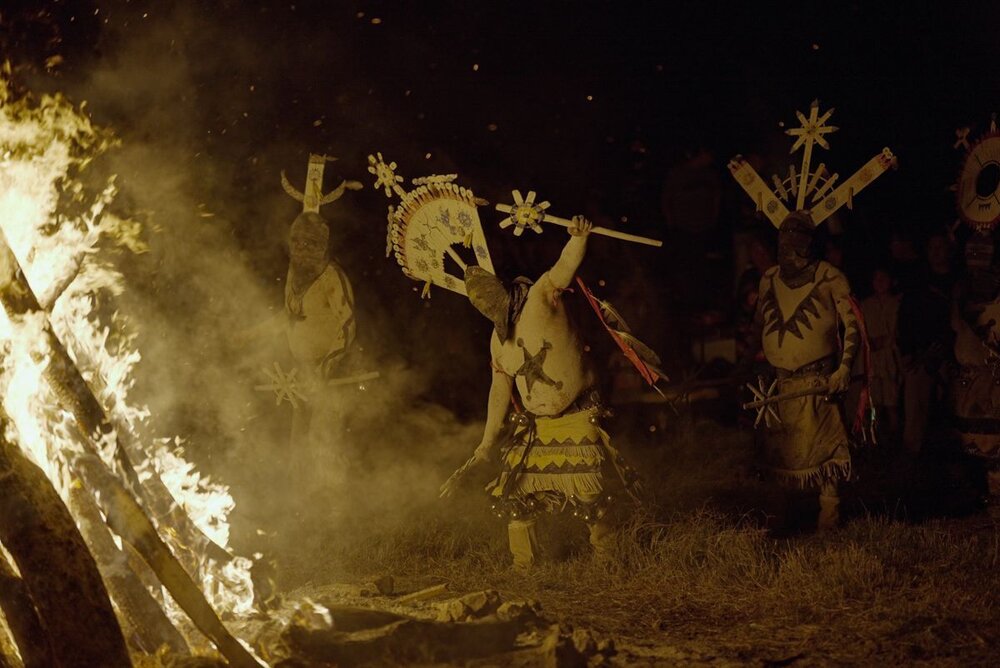U.S. Supreme Court to Review Apache Stronghold’s Case on Nov. 22, 2024
For Immediate Release: November 7, 2024 Media Contact: Ryan Colby | media@becketlaw.org | 202-349-7219
WASHINGTON – A coalition of Western Apaches, other Native peoples, and non-Native allies yesterday asked the Supreme Court to reject plans by the federal government and a multinational mining giant to destroy a sacred site where Apaches have held religious ceremonies for centuries. In Apache Stronghold v. United States, the Ninth Circuit Court of Appeals refused to stop the federal government from transferring Oak Flat to Resolution Copper, a foreign-owned mining company that plans to turn the site into a massive mining crater, ending Apache religious practices forever ( Watch this short video to learn more). The latest Supreme Court filing rebuts the government’s argument that religious freedom protections in the U.S. Constitution and the Religious Freedom Restoration Act (RFRA) do not apply on federally controlled land.
Since time immemorial, Western Apaches and other Native peoples have gathered at Oak Flat, outside of present-day Superior, Arizona, for sacred religious ceremonies that cannot take place anywhere else. Known in Apache as Chi’chil Biłdagoteel, Oak Flat is listed in the National Register of Historic Places and has been protected from mining and other harmful practices for decades. These protections were targeted in December 2014 when a last-minute provision was slipped into a must-pass defense bill authorizing the transfer of Oak Flat to the Resolution Copper company. Resolution plans to turn the sacred site into a two- mile-wide and 1,100-foot-deep crater. The majority owner of Resolution Copper, Rio Tinto, sparked international outrage when it deliberately destroyed 46,000-year-old Indigenous rock shelters at one of Australia’s most significant cultural sites.
“Oak Flat is our spiritual lifeblood—like Mt. Sinai for Jews or Mecca for Muslims—the sacred place where generations of Apache have connected with our Creator,” said Dr. Wendsler Nosie Sr. of Apache Stronghold. “The government should protect Oak Flat just like it protects the sacred places of all other faiths in this country—not give it to a foreign-owned mining company for destruction.”
Apache Stronghold—a coalition of Apaches, other Native peoples, and non-Native allies—filed this lawsuit in January 2021 seeking to halt the proposed mine at Oak Flat. The mine is opposed by 21 of 22 federally recognized tribal nations in Arizona, by the National Congress of American Indians, and by a diverse coalition of religious denominations, civil-rights organizations, and legal experts. Meanwhile, national polling indicates that 74% of Americans support protecting Oak Flat. The Ninth Circuit ruled earlier this year that the land transfer is not subject to federal laws protecting religious freedom. But five judges dissented, writing that the court “tragically err[ed]” by refusing to protect Oak Flat.
“Blasting the birthplace of Apache religion into oblivion would be an egregious violation of our nation’s promise of religious freedom for people of all faiths,” said Luke Goodrich, vice president and senior counsel at Becket. “The Supreme Court has a strong track record of protecting religious freedom, and we expect the Court to take this case and confirm that Native American religious practices are fully protected by federal law.”
In addition to Becket, Apache Stronghold is represented by Erin Murphy of Clement & Murphy PLLC, Professor Stephanie Barclay of Georgetown Law School, and attorneys Michael V. Nixon and Clifford Levenson.
https://youtu.be/vCIGlv0xu_U?si=w6emWM8t8wOe93b9
Apache Stronghold v. United States is one of the most significant decisions pending the U.S. Supreme Court. To allow Resolution Copper/Rio Tinto to destroy sacred Oak Flat would be like destroying St. Patrick’s Cathedral to put up a McDonald’s just in time for Christmas. The masses (no pun intended) of people would go ape shit cray-cray. Resolution Copper/Rio Tinto is capable of such atrocities; may enough of the judges show true heart-mind and make the right-wise decision in favor of Apache Stronghold and the well-being and balance of the Earth. - Mankh
U.S. Supreme Court to Review Apache Stronghold’s Case on Nov. 22, 2024
More info about Apache Stronghold
An example of what Rio Tinto has done… Simandou, Guinea, “with over two billion tonnes of reserves and some of the highest grades [iron ore] in the industry (66% – 68% Fe which attracts premium pricing), has a back-of-the-envelope calculation value of around $110 billion at today’s prices.”
Banner Becket FLR
